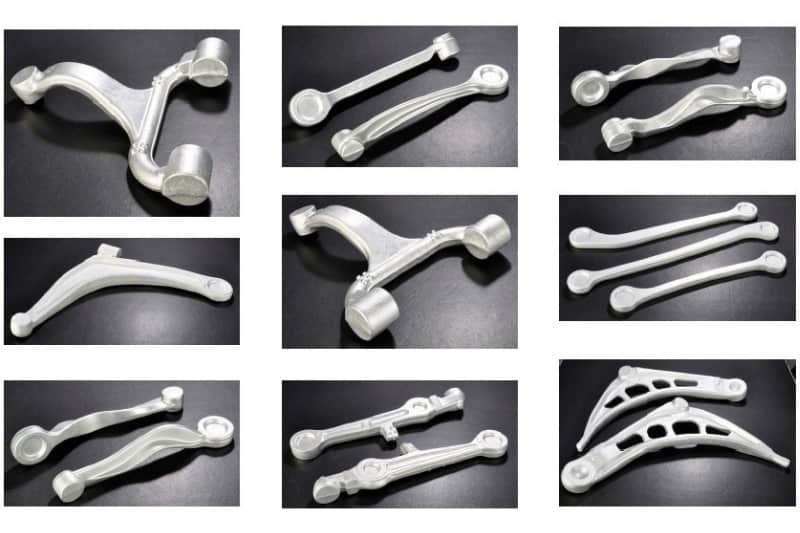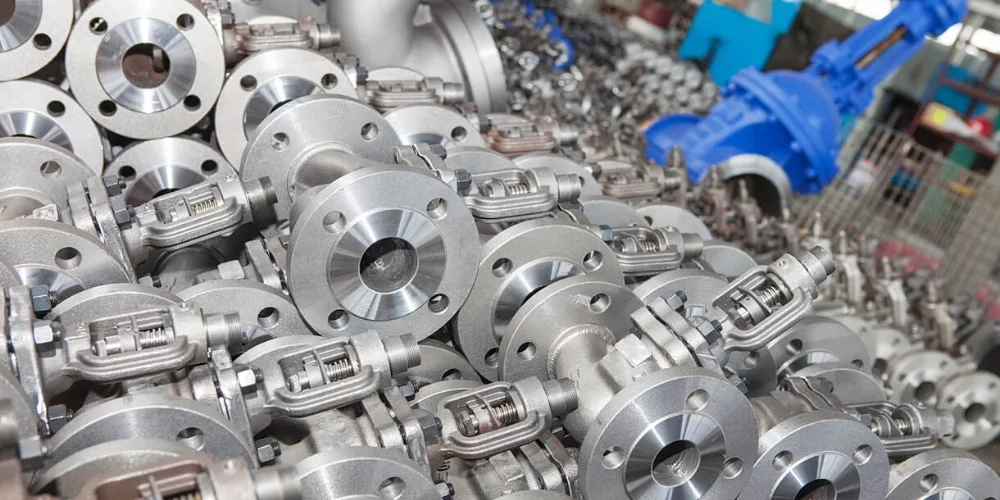Table of Contents
Overview
CNC (Computer Numerical Control) technology has revolutionized many industries, including nut production. In this article, we’ll explore CNC nuts and answer common questions about their production and applications.
Understanding CNC Machined Nuts
CNC technology denotes Computer-Based Numerically Controlled Technology – an advanced computer-based manufacturing method used for automated machining. CNC technology refers to the computer-controlled movement of machine tools, toolholders, and workpieces in order to precision enginear parts and components. A nut is a mechanical part that can be seen in many places used as a fastening tool for the threaded rods or shafts to either rotate, move on it and so forth.
By using the CNC technology, one can machine various types of nuts like bots of standards differing materials and shapes. With conventional CNC machine tools, computer programming allows for the automated movement of cutting tools, which is critical to obtaining uniform machining such as outer diameter of the nut and inner dia aspect , threads characteristics and other. Investigating this approach enables the production of good-quality nuts that can potentially fulfill different industry needs.
In conclusion, CNC technology can be used to manufacture nuts to foster the degree of production efficiency as well as accuracy and consistency while responding in line with the differentization needs among various kinds of nuts.
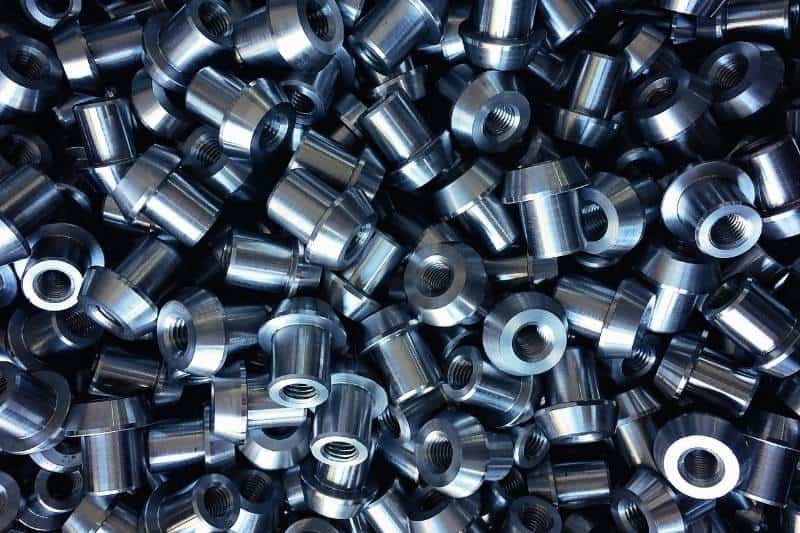
Choose CNC Technology for Producing Nuts
Using CNC technology for the production of nuts is a good idea. The advantages of CNC machines include accuracy, efficiency, and versatility-permitting the making of nuts to have accurate dimensions and threads. They allow for personalization so as to ensure that nuts meet individual needs. CNC technology , at the same time, eliminates human error and increases repeatability and cost savings offered by automated production to improve nut manufacturing efficiency with less lead times.
Materials Used to Produce CNC Nuts
CNC nuts can be made from several materials including metal such as steel, brass and aluminum also of plastics such as nylon and PTFE. Selecting these materials, such as factors of strength, corrosion resistance, weight, electrical properties; made for various applications. Furthermore, specialised applications requiring critical strength or enhanced endurance to extreme conditions rely on alternative exotic materials such as titanium and Inconel. The choice of the material is driven by intended purpose and environmental aspects along with attitude in most cases, which have led to optimal productivity and costs.

Types of Nuts Can Be Produced Using CNC Technology
With CNC technology, it is possible to produce a broad variety of nut types including standard hex nuts squares, flange-nuts lock nuts wing –nuts caps T-nus weld exact castle nuts coupling jam self aiming etc. These nuts provide solutions to many fastening and connecting needs in different professions. The CNC machining guarantees for the accuracy of dimensions, thread types and materials that make them applicable to a broad range of applications-from general bolting to very specific ones—such as securing on welding or fixtures in the inclined tables of machine tools.
Differences Between CNC Nuts and Traditionally Manufactured Nuts
The CNC nuts, which are manufactured using computer-controlled machinery; are different when compared to the traditional ones only in the precision, customization, efficiency, material options and uniformity. CNC nuts provide high accuracy, tailored to fit specialized requirements and achievement of efficiency in production process making them ideal for purposes that require precision. In contrast, nuts created by traditional manufacturing methods such as forging or casting may have minor fluctuations in size and thread quality, although they are more restricted in capacity to design customisation which may lead to extended lead times and pressed costs.
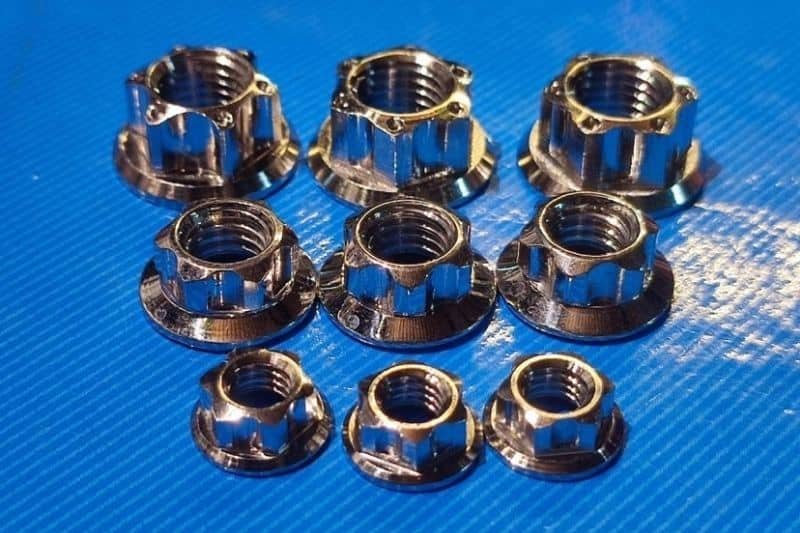
CNC Technologies Can Be Used to Produce Nuts
CNC milling and turning are the essential technologies that influence nut production. CNC milling is good at making such delicate nut design as it helps in producing lots of features with high precision. In contrast, CNC turning is the method to choose when manufacturing nuts cylindrical or round with exceptional precision and uniformity. Both operations guarantee accuracy and tailor-made manufacture, allowing one to design nuts specific for a number of industries. Monitoring and control by the automated CNC technology involves reduced errors, efficient utilization of material cost and inexpensive production process which makes it an essential part of nut manufacturing across several industries.
Threads Used for Standard Nuts
The threads used for standard nuts typically depend on the specific standard and application. Common thread types for standard nuts include Unified Thread Standard (UTS), also known as Unified National Thread and ISO metric threads. These threads have standardized dimensions and are used in various industries and applications.
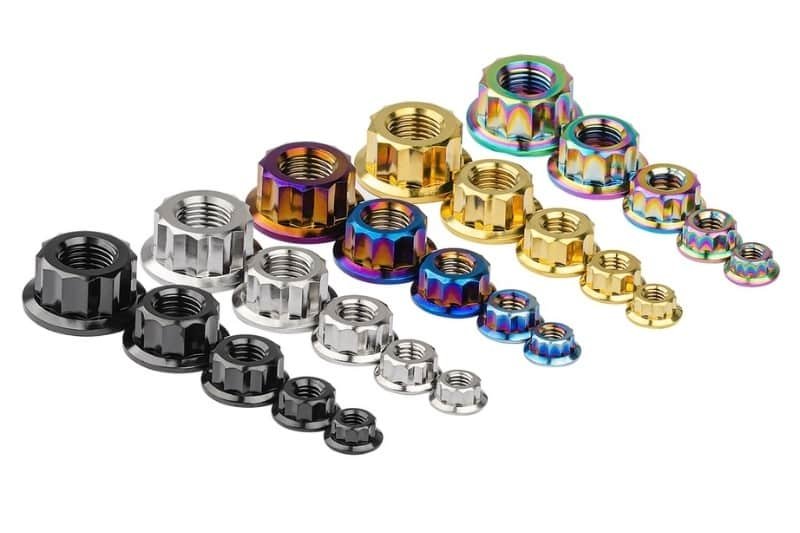
Using CNC Technology for Nuts Production Results in Less Waste Material
Due to use of CNC (Computer Numerical Control) technology in production process, nut waste is very minimal. Cutting and shaping materials are the end goal of CNC machines while minimizing wastage because they are very finely programmed to that effect. This accuracy does not only save natural resources, but also reduces production costs thanks to a reduction of materials lost during the process.
Each nut produced via CNC technology is made by using virtually the minimum amount of material; hence, the manufacturing process turns out to be more environmentally friendly and cost-effective. With regard to these large-scale nut industries, this saving of waste materials is especially important as companies reduce the use of raw ingredients and contribute towards a more environmentally responsible manufacturing process.
CNC Suitable for Large-Scale Production of Nuts
In large-scale nut production, CNC technology is the best as it checks on time, precision and specialization. These machines are also preferred by industries requiring their nuts to be uniform in large quantities because they guarantee uniform quality always. In addition, CNC technology minimizes labor cost and cuts down the use of materials for efficient material usage and cheap and green manufacturing.
Therefore, CNC machines present a high-end option especially for commercial nut production since they automate the process and lead to zero product wastage through their precision while cutting down labor costs. This has therefore made them to be irreplaceable in the industries which are majorly based on manufacturing of tons of nuts.

Using CNC for Nut Production More Cost-effective
The use of CNC technology for nut production is greatly economical because labor cost, material usage, high accuracy and customization like service are minimized. CNC machines work almost autonomously, so there is practically no human intervention in the process and it saves labor costs significantly favoring for big-scale production of nuts. Moreover, the fact that they could rationally use materials and achieve constant quality minimizes waste and unnecessary costly measures to control it. Additionally, the CNC-machines can be reprogrammed for other nut sizes, thus improving productivity without expensive changes in toolings. In conclusion, CNC technology is an economical and easy way of nut producing for manufacturers.
Guidance for Customize CNC Nuts
To customize CNC nuts with manufacturers begin, you need to identify your requirements, select a credible manufacturer and outline detailed drawings . Material – specification, quantity, lead times and aspects of quality control also should be discussed taking into consideration needs and budget for your project. Asking for samples or prototypes before full production guarantees compliance with the agreed specifications. Communicate effectively throughout process and do a final check to ensure quality of work.
In brief, creating custom CNC nuts demands an adequate preparation and cooperation of a reliable manufacturer to adapt individual needs in the most successful and cost-effective manner. Hone your needs, pick up materials that meet them, and keep communication smooth throughout the process to make it go well quality-wise and according to the timeline of your project.

Conclusion
CNC nuts play a vital role in various industries, offering precision, customization, and reliability. Understanding their production and applications can help businesses make informed decisions about utilizing CNC technology for nut production.
Resources:



